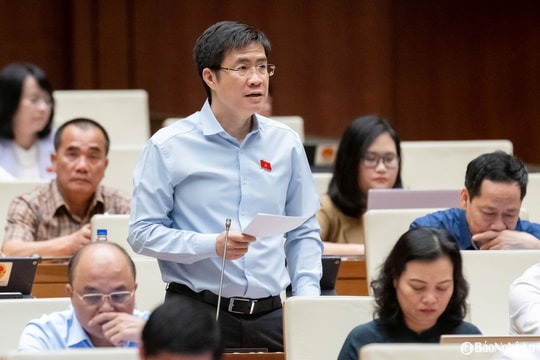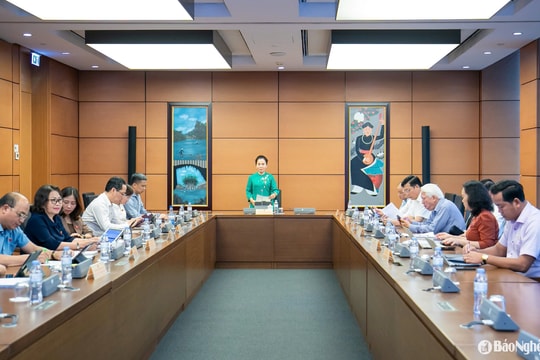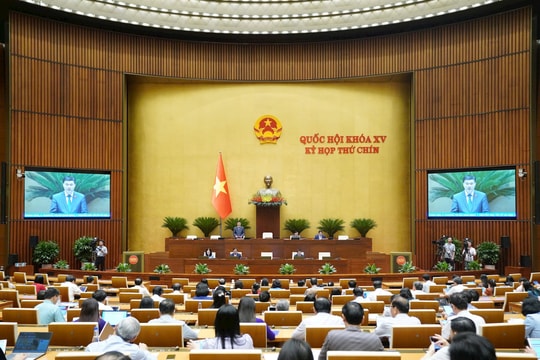Nghe An National Assembly Delegates give comments on amending the State Budget Law
The National Assembly delegation had many frank and profound comments on the draft Law on State Budget (amended).
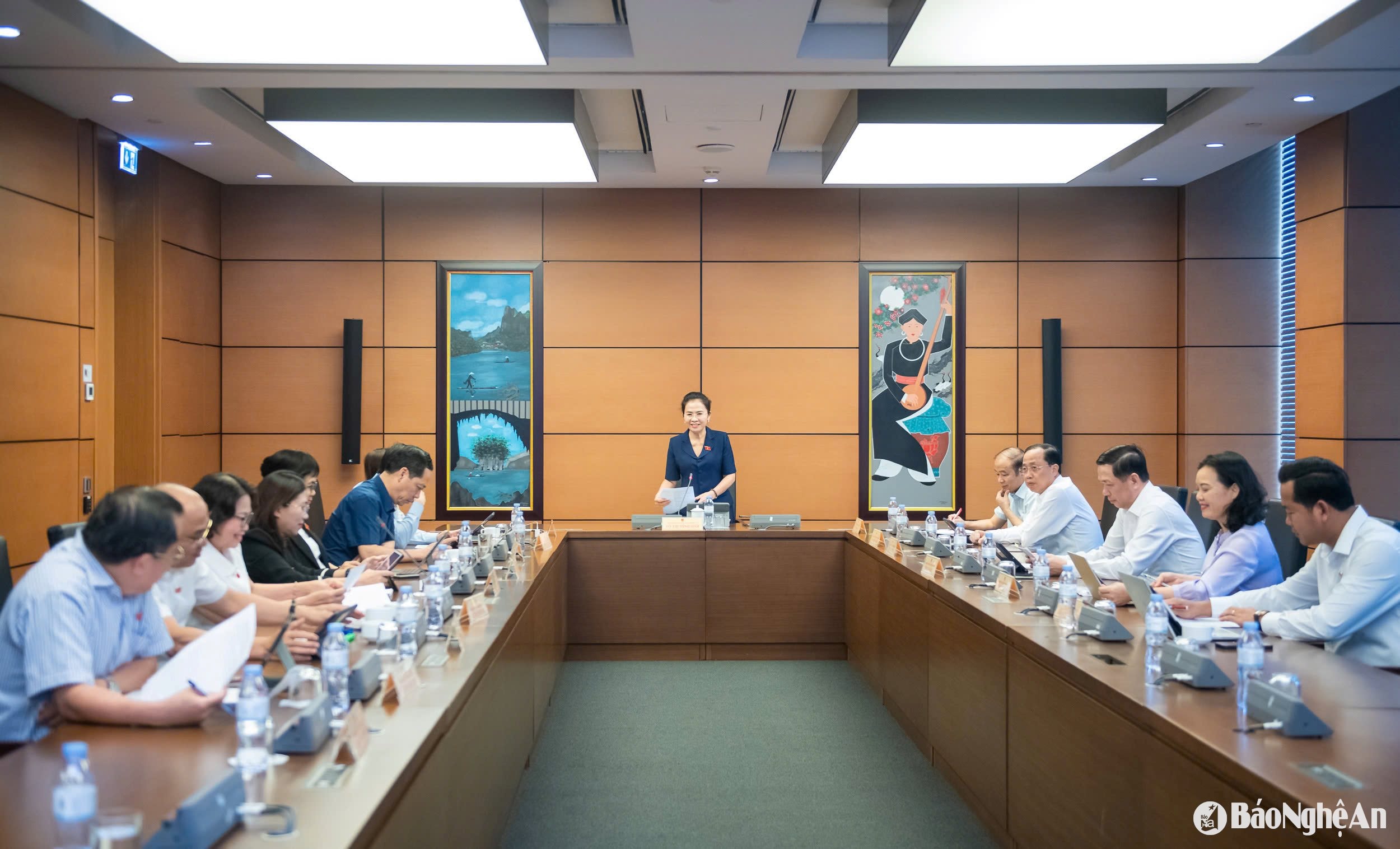
On the afternoon of May 17, the National Assembly discussed in groups: Draft Law on amending and supplementing a number of articles of the Law on Vietnamese Nationality; Draft Law on State Budget (amended); Draft Law on amending and supplementing a number of articles of the Law on Bidding; Law on Investment under the public-private partnership model; Law on Customs; Law on Export Tax and Import Tax; Law on Investment; Law on Public Investment; Law on Management and Use of Public Assets.
The National Assembly delegation of Nghe An province discussed at Group 4, together with delegations from Hai Phong city and Ba Ria - Vung Tau province.
Maintain the National Assembly's authority to decide on specific spending levels
Discussing the draft Law on State Budget (amended), delegate Thai Thi An Chung - Member of the Provincial Party Committee, Deputy Head of the Delegation of National Assembly Deputies of Nghe An province proposed to maintain the current regulations on the National Assembly deciding on specific spending levels for a number of key areas, such as education - training, vocational training. She also proposed to add more content related to spending levels for science, technology, innovation and spending on law-making.
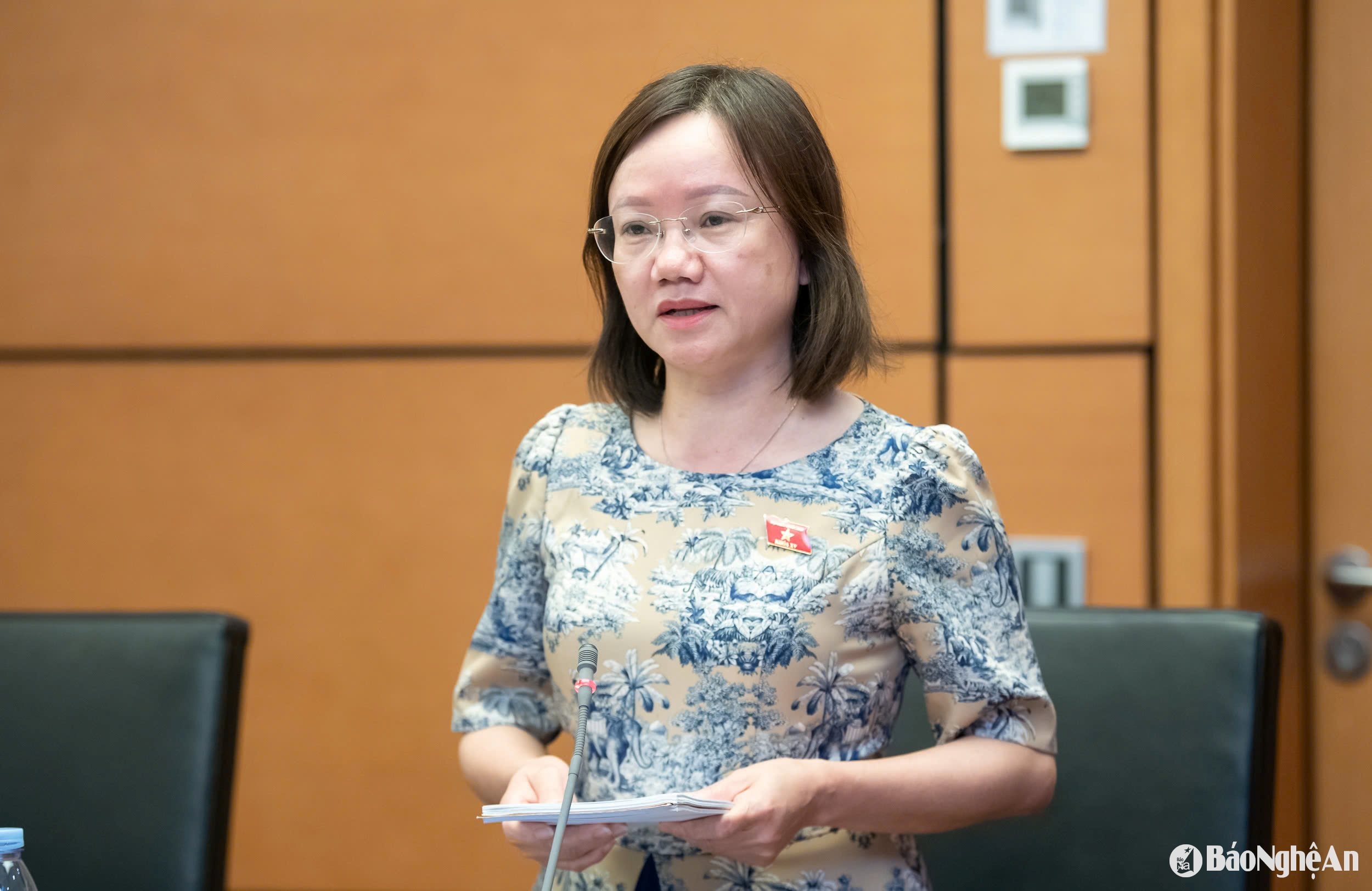
“Currently, we identify education, training, science and technology as top national policies. Therefore, maintaining regulations on specific spending levels for each field is necessary to clearly demonstrate priorities in budget investment,” the delegate emphasized.
Regarding the work of law-making, Ms. Thai Thi An Chung said that it is necessary to specify more clearly the ratio of expenditure for law-making activities. According to the delegate, on the morning of May 17, the National Assembly voted to pass the Resolution of the National Assembly on a number of special mechanisms and policies, creating breakthroughs in law-making and organization, in which the ratio of expenditure is stipulated to not exceed 0.5% and has a roadmap to increase gradually over the years.
The delegate commented: If we do not stipulate this authority of the National Assembly, we will be going against the spirit of the Constitution, the original law clearly establishing the authority of the National Assembly in deciding on specific spending levels for these areas.

Regarding the revenue division ratio between the central budget and local budgets, delegate Thai Thi An Chung expressed her agreement with option two in the draft law, which stipulates the division principle in the law and assigns the Government to develop a plan to submit to the National Assembly for consideration and decision on each period of budget stabilization or annual adjustment when necessary.
The third suggestion raised by the delegate was related to the content of local budget revenues. She said that in the National Assembly Resolution on mechanisms and policies for private economic development, there is a provision to abolish fees and business license fees from January 1, 2026. However, in the draft Law on State Budget (amended), this revenue is still kept as a part of local budget revenue.
Therefore, the delegate of Nghe An delegation proposed to review and adjust this content in the draft law to ensure consistency and avoid legal conflicts during implementation.
Clarifying the authority to abolish illegal documents
Commenting on the draft Law on State Budget (amended), delegate Tran Nhat Minh - full-time National Assembly member of Nghe An Delegation expressed his agreement with many of the amendments in the draft. However, the delegate also gave his opinion on two specific groups of issues to complete the draft law.
First of all, commenting on the duties and powers of People's Councils at all levels, according to delegates, the draft stipulates that People's Councils are allowed to abolish documents that violate the law on finance and budget, but does not specify which agency issued those documents. This may lead to the perception that People's Councils at all levels have the right to abolish all types of legal documents on finance and budget, including documents that are not under the authority of current law.
The delegate also noted that the current law clearly stipulates that the People's Council only has the right to annul illegal documents of the People's Committee and the Chairman of the People's Committee at the same level. However, this provision has been omitted in the draft, leading to a lack of specificity in the authority to handle illegal documents.
At the same time, the draft also does not mention the right to suspend the implementation of illegal documents, a content that has been stipulated in the Law on Organization of Local Government.
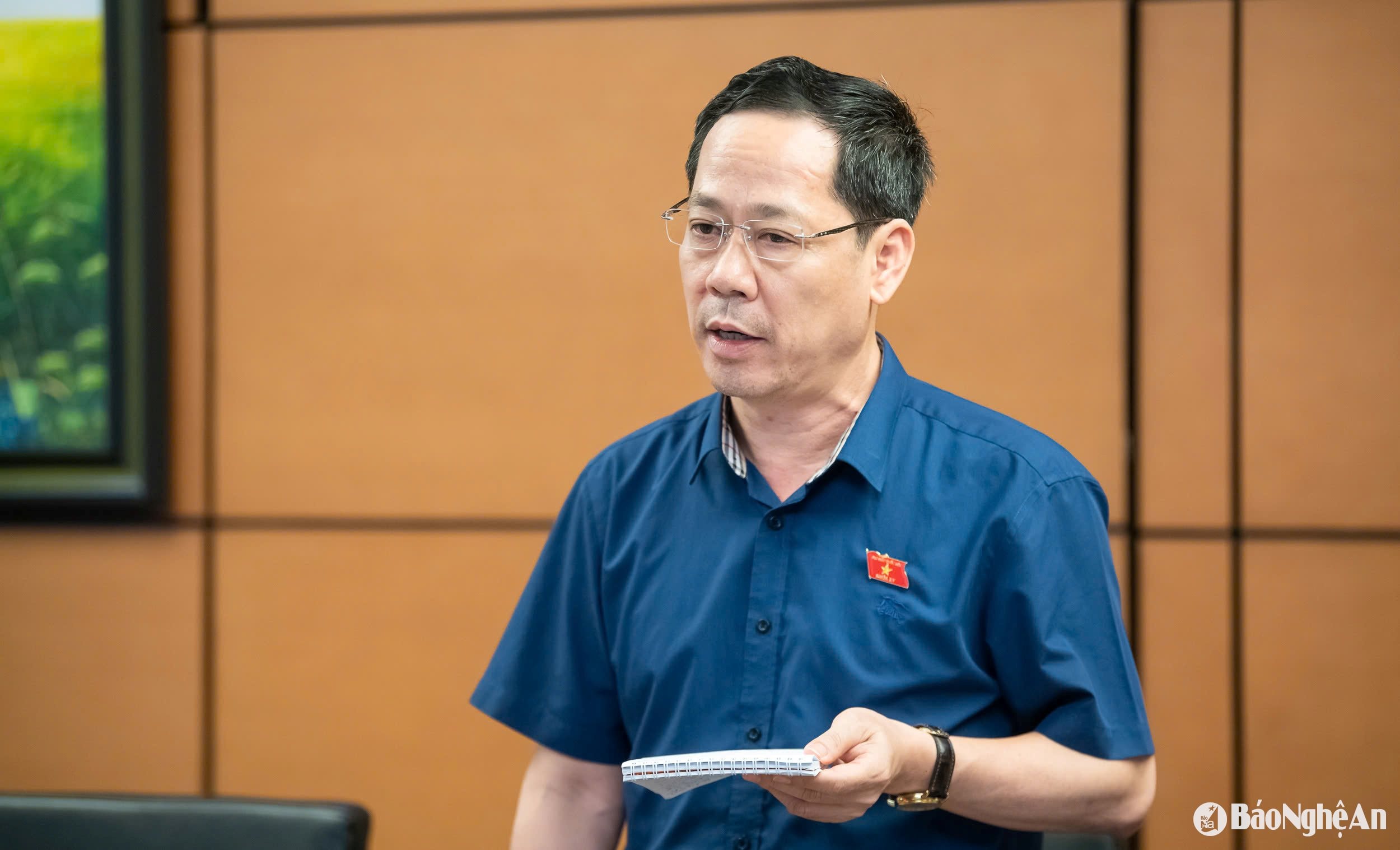
Therefore, delegate Tran Nhat Minh proposed to amend in the direction that: People's Councils at all levels have the authority to suspend the implementation, abolish part or all of illegal documents on finance and budget of the People's Committee, Chairman of the People's Committee at the same level; at the same time, have the right to abolish part or all of illegal documents of People's Councils at lower levels in the field of finance and budget.
Second, delegate Tran Nhat Minh mentioned the regulation that empowers the provincial People's Council to decide to assign the commune People's Council to issue policies and regimes appropriate to the development level and budget capacity. The delegate suggested that the drafting agency should study this regulation more carefully to ensure that it does not conflict with the Law on Organization of Local Government, especially the principles of decentralization, delegation of power and authorization.

